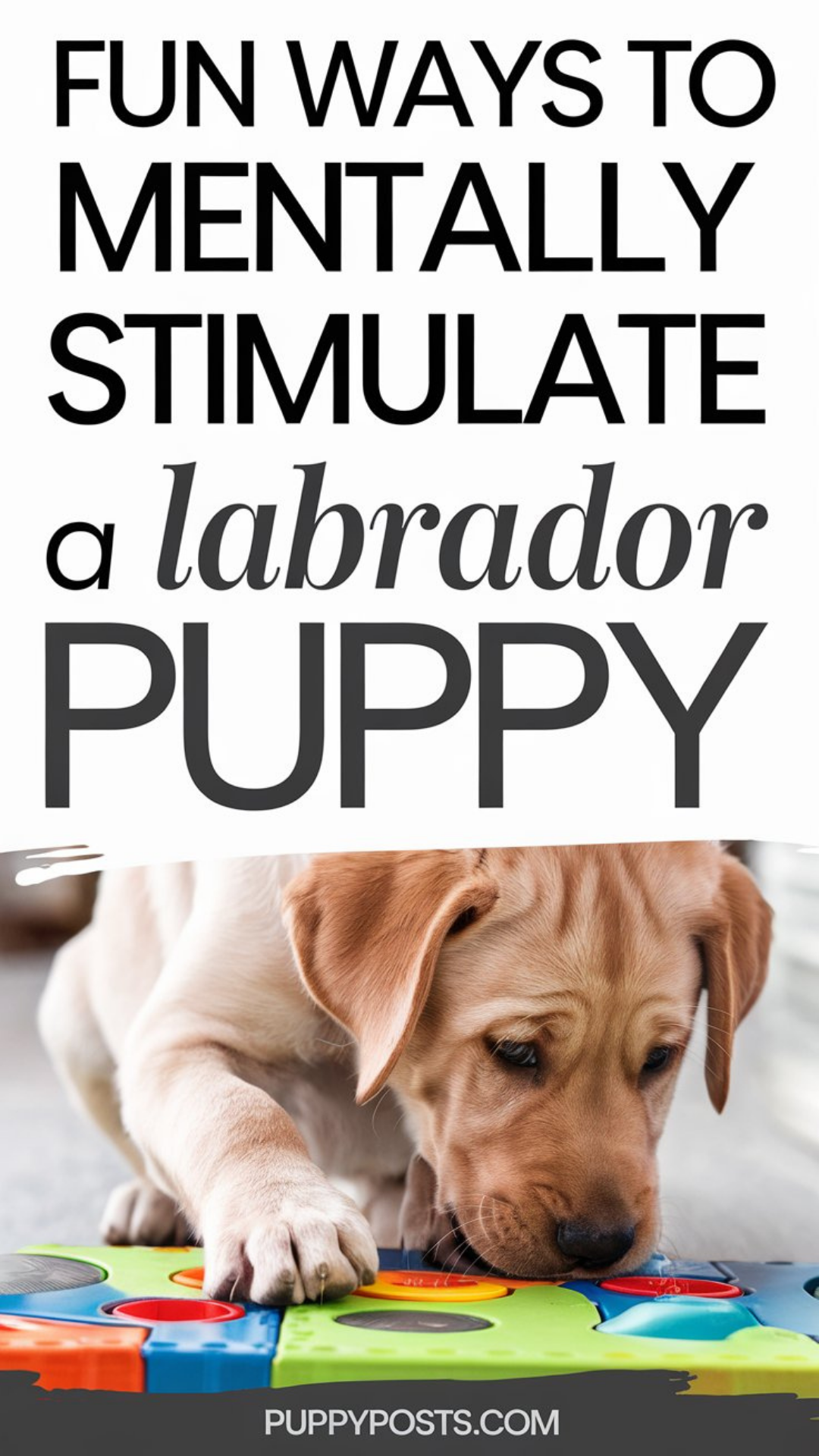Fun ways to mentally stimulate a Labrador puppy
Alright, let’s talk about Labrador puppies. Everyone loves ’em, right? Big, clumsy paws, goofy grins, bundles of boundless energy. But don’t let that cute face fool ya. Underneath all that fluff is a smart cookie with a brain that’s just itching to learn. And as a vet who’s been doing this for ten years and running my sanctuary here in Jersey, I’ve seen too many Labrador puppies turn into little land-sharks or hyperactive nightmares because their brains aren’t getting enough work. Physical exercise is important, sure, but a tired body with a bored mind is still trouble. You gotta stimulate that developing brain, or you’ll have a house full of chaos. So, let’s get serious about some fun, smart ways to keep your little Lab’s mind sharp.

Nose Games for Little Learners: Tapping into Instinct
A Labrador puppy’s nose is already a powerful tool. It’s how they explore the world, and it’s a fantastic way to tire them out mentally without over-exercising those growing joints.
- “Find It!” (Puppy Edition): This is gold, plain and simple. While your puppy watches, place a tiny, high-value treat (think a pea-sized piece of cooked chicken) in plain sight on the floor. Say “Find it!” and let them sniff it out. Lots of praise when they get it. As they catch on, gradually make the hiding spots slightly harder – under a light cloth, behind a chair leg. Keep it easy enough that they succeed quickly, building confidence. This makes their brain work hard.
- The Muffin Tin Shell Game: Grab a muffin tin and a few tennis balls. Put a small treat in just one cup. Place tennis balls over all the cups. Your puppy has to figure out which ball to move to get the treat. Start with fewer cups if needed. This is brilliant for problem-solving and teaches them to use their nose and paws cooperatively.
- Towel Roll-Up: Lay a towel flat. Sprinkle some kibble or small treats on one end. Slowly roll the towel up, trapping the treats inside. Your puppy has to unroll or manipulate the towel to get the goodies. Simple, cheap, and surprisingly effective for mental engagement.
Brainy Bites: Making Meals a Mental Workout
Don’t just dump food in a bowl. Mealtime is a prime opportunity to challenge that smart Lab puppy.
- Puzzle Feeders for Pups: Ditch the bowl for at least one meal a day. Get a puppy-appropriate puzzle feeder. These require your Lab to nudge, bat, or roll the feeder to release kibble. It turns eating into a job and makes them think. A classic KONG stuffed with wet food or xylitol-free peanut butter and then frozen is also a lifesaver for quiet time.
- Scattered Meals: Instead of a bowl, scatter a portion of their kibble on a clean floor or a snuffle mat. They’ll have to sniff out each piece, which slows down their eating and engages their brain and nose. This is great for active chewers who inhale their food too fast.
Structured Play: Controlled Thinking & Moving
Puppies are clumsy, so intense physical exercise should be limited. But you can combine short bursts of controlled movement with mental tasks.
- “Target Training”: This is a building block for so much! Hold out your open palm (or a target stick). When your puppy touches it with their nose, say “Touch!” and give a treat. Repeat. Once they get it, you can move your hand around, making them walk a few steps to touch it. This teaches focus and coordination.
- Puppy “Agility” (Safe & Simple): No need for expensive equipment. Set up a mini-obstacle course with household items. Have them walk over a broomstick laid flat on the floor, or walk around a few strategically placed laundry baskets. Lure them with treats. This teaches them body awareness and how to navigate different spaces. Keep it low-impact and short.
- “Go Find Your Toy!”: Start by teaching your puppy the names of just one or two of their favorite toys (“Ball,” “Rope”). Say the toy’s name, then toss it a short distance and encourage them to retrieve it. As they learn, you can place both toys on the floor and ask them to “Get the [specific toy name].” This builds their vocabulary and listening skills.
My Jersey Wisdom: Keep it Short, Keep it Sweet
Listen, with a Labrador puppy, consistency is everything. They have short attention spans, so keep these “training games” to 5-10 minutes, a few times a day. Always end on a positive note, even if it’s just for a simple “sit” they did well. Use lots of praise and tiny, high-value treats. Never yell or get frustrated; you’ll just scare them and break their trust.
Mentally stimulating your Labrador puppy isn’t just “fun”; it’s critical. It prevents boredom, reduces destructive behaviors, and builds a solid foundation for a calm, confident, and well-behaved adult dog. You put the work in now, using their smarts, and you’ll have a companion that truly shines. And that, my friend, is the honest truth.







